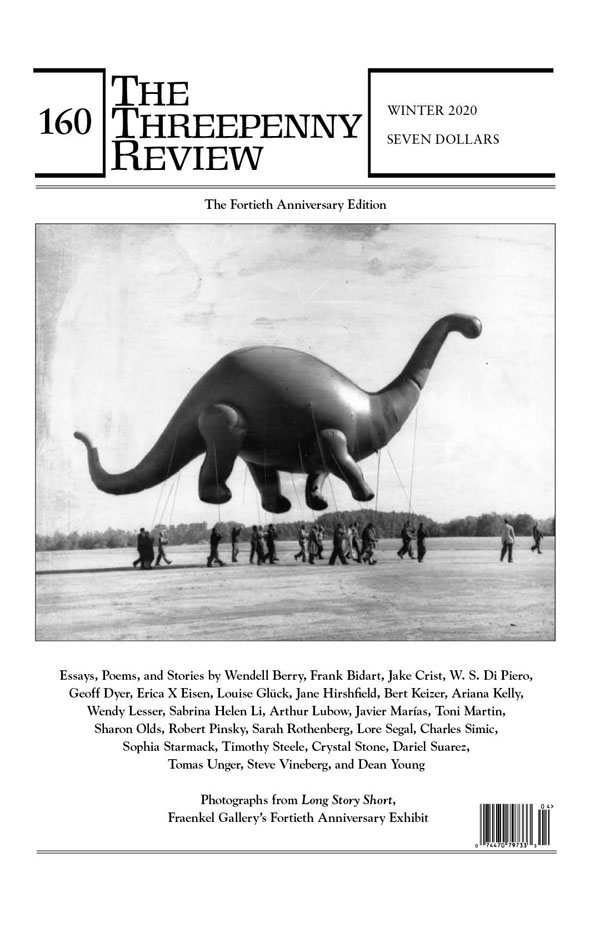I am againstsymmetry, he said. He was holding in both handsan unbalanced piece of wood that had beenvery large once, like the limb of a tree:this was before its second life in the water,after which, though there was less of itin terms of mass, there was greaterspiritual density. Driftwood,he said, confirms my view—this is why it seemsinherently dramatic. To make this point,he tapped the wood. Rather violently, it seemed,because a piece broke off.Movement! he cried. That is the lesson! Look at these paintings,he said, meaning ours. I have been making artlonger than you have been breathingand yet my canvases have life, they are drowningin life—Here he grew silent.I stood beside my work, which now seemed rigid and lifeless.We will take our break now, he said.I stepped outside, for a moment, into the night air.It was a cold night. The town was on a beach,near where the wood had been.I felt I had no future at all.I had tried and I had failed.I had mistaken my failures for triumphs.The phrase smoke and mirrors entered my head.And suddenly my teacher was standing beside me,smoking a cigarette. He had been smoking for many years,his skin was full of wrinkles.You were right, he said, the wayinstinctively you stepped aside.Not many do that, you’ll notice.The work will come, he said. The lineswill emerge from the brush. He paused hereto gaze calmly at the sea in which, now,all the planets were reflected. The driftwoodis just a show, he said; it entertains the children.Still, he said, it is rather beautiful, I think,like those misshapen trees the Chinese grow.Pun-sai, they’re called. And he handed methe piece of driftwood that had broken off.Start small, he said. And patted my shoulder.
Night School
Feature Date
- May 5, 2020
Series
Selected By
Share This Poem
Print This Poem
Copyright © 2020 by Louise Glück
All rights reserved.
Reproduced by Poetry Daily with permission.

Winter 2020
Berkeley, California
Editor and Publisher
Wendy Lesser
“Everyone should rush right out and subscribe to The Threepenny Review.”
—Tony Kushner
“There are vanishingly few magazines left in this country which seem pitched at the general literary reader and which consistently publish such interesting, high-quality criticism, reflection, argument, fiction, and poetry…Threepenny is thankfully still out there.”
—Jonathan Franzen
“The Threepenny Review is one of the most original literary magazines not only in the U.S. but also on the entire planet (as far as my experience allows me such a judgment). Why? Because it stands outside the fads of the day; it’s not driven by any intellectual group or fashion. What it does is give the readers the taste of many individual writers’ voices.”
—Adam Zagajewski
Poetry Daily Depends on You
With your support, we make reading the best contemporary poetry a treasured daily experience. Consider a contribution today.



